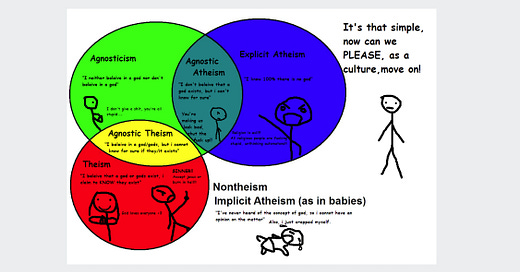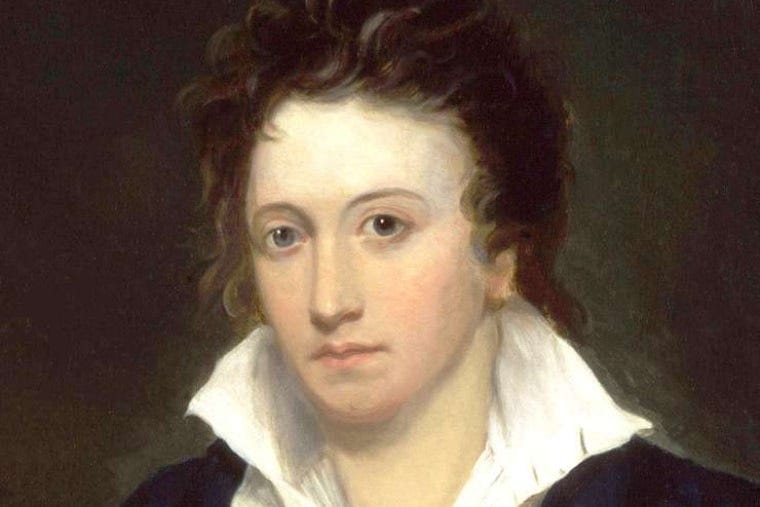[06/05, 17:17] rogerglewis13: you said it's not equal but then you're saying
41:59
it's not normal I said it's equal but it's not normal well I think you said it well people can rewind and maybe I'm
42:05
maybe you're wrong but the point is you voted for a piece of legislation which implicitly recognizes equality under the
42:11
law for gay people I I got a stone wall award for recognizing yes wow I don't
42:16
know that because I was one of only a handful of MPS who opposed the reduction
42:22
in the age of consent from 21 to 18 rather than
[06/05, 17:17] rogerglewis13: SO what did they cook up on the rewind then Ranjan?
[06/05, 17:18] rogerglewis13:
[06/05, 17:38] rogerglewis13: Whats your verdict?
[06/05, 17:53] Ranjan: I think Aaron is saying that Galloway said that it's not normal to be gay.
[06/05, 17:54] Ranjan: I don't think George said it's not normal to be gay, he said he didn't want his children to be taught that every aspect of gay lifestyle including marriage is normal when compared to the heterosexual family
[07/05, 01:18] rogerglewis13: https://thealtworld.com/alastair_crooke/the-beast-of-ideology-lifts-the-lid-on-transformation
[07/05, 03:11] rogerglewis13: https://longhairedmusings.wordpress.com/2017/05/04/authentic-discourses-on-decisions-to-act/
[07/05, 03:12] rogerglewis13:
Rise Like Lions
https://thealtworld.com/alastair_crooke/the-beast-of-ideology-lifts-the-lid-on-transformation TheAltWorld HOME / Politics / The beast of ideology lifts the lid on transformation POLITICS The beast of ideology lifts the lid on transformation ALASTAIR CROOKE
[07/05, 03:17] rogerglewis13: You have to persuade yourself that you absolutely don’t care what happens. If you don’t care, you’ve won. I absolutely promise you, in every serious negotiation, the man or woman who doesn’t care is going to win.
Felix Dennis
[07/05, 03:24] rogerglewis13: Manipulation, my very long post above Authentic May 4, 2017
AUTHENTIC DISCOURSES ON DECISIONS TO ACT.
Well worth reading
https://longhairedmusings.wordpress.com/2017/05/04/authentic-discourses-on-decisions-to-act/
[07/05, 06:34] rogerglewis13: The normative rather than perjoritive sense of Establishment is what I am talking about.
0
0
Reply
Roger
May 7, 2024 6:25 AM
Reply to roger
In a situation of manipulation, the Left is almost always tempted by a “quick return to power,” forgets the necessity of joining with the oppressed to forge an organization, and strays into an impossible “dialogue” with the dominant elites. It ends by being manipulated by these elites, and not infrequently itself falls in an elitist game, which it calls “realism.”
Manipulation, like the conquest whose objectives it serves, attempts to anesthetize the people so they will not think. For if the people join to their presence in the historical process critical thinking about that process, the threat of their emergence materializes in revolution…One of the methods of manipulation is to inoculate individuals with the bourgeois appetite for personal success. This manipulation is sometimes carried out directly by the elites and sometimes indirectly, through populist leaders.
Paulo Freire, Pedagogy of the Oppressed
Authentic Discourses on Decisions to Act.
A golden Rule in folklores Canon
holds what’s sauce for the goose is sauce for the Gander
do unto others that which to you would be done
thus applied in discussion, we should always avoid slander.
Leave at the first introduction
the habits of Authority and induction
When those listening seem deaf to what you tell
refrain if you please from poisoning the well
if your working hypothesis requires certitude
refrain from tailoring cloth that renders the emperor nude
If to your point, you wish others to allude
refrain from a hypocritical sneering attitude.
When your correspondent appeals to evidence
consider their sources, were they well meant?
In all matters, skepticism will serve you with equivalence
and always remember to mistrust the Government.
“man müsse das Volk stets in Armuth erhalten, damit es gehorsam bleibe.”(2)
Belloc characterised the reformation as
´´a rising of the rich against the poor´´,(1)
´and indeed Calvin had written the unfortunate statement:
´´The people must always be kept in poverty in order that they remain obedient´´.(2)
p.198 Lost Science of Money.(1)
News & AnalysisAbout SWP
Percy Bysshe Shelley—if winter comes, can spring be far behind?
This article is over 1 years, 9 months old
On the 200th anniversary of Percy Bysshe Shelley’s death, Judy Cox looks at the radical’s poems and the world that shaped them
Friday 22 July 2022
Percy Bysshe Shelley died in 1822 (Picture: National Portrait Gallery London)
The poet Percy Bysshe Shelley, who died 200 years ago this month, wasn’t a dreamer who created a world of literary beauty in order to escape from society. He was a revolutionary who wrote to spark the imaginations of the people and encourage them to rise up against the monarchy, church, state and exploiters.
Shelley was born in 1792. His father Sir Timothy Shelley was a baronet, and he had an assured future as a respected member of the landed gentry. But Shelley chose a different path. His world was overshadowed by two revolutions—the French Revolution and the Industrial Revolution.
For Shelley’s generation, the French Revolution symbolised both the possibility of remaking the world and the dangers inherent in any such attempt. And the emerging Industrial Revolution was both destructive and creative. It destroyed ways of living and sucked men, women and children into factories and mines, but also created powerful forces of collective resistance.
Shelley always hated the hierarchical and vicious institutions which trained young men to assume power over others. He loathed Eton College, where he was bullied, and was expelled from Oxford when he published his first major work The Necessity of Atheism.
Nor did he accept the arranged marriages then common to people of his class. In 1810, he ran away with Harriet Westbrook, and the teenagers were cut off by both families. Harriet’s sister Eliza came to live with them, first in Ireland, where Shelley embraced the cause of Catholic emancipation, and then in Wales.
Shelley spent the rest of his life trying to create communal ways of living with small groups of lovers, friends and relatives, with varying degrees of success.
In Wales, Shelley began writing his first radical poem, Queen Mab, which established many of the overarching themes of his poetry. It includes the celebration of energy and resistance to tyranny, and domination of machines:
Nature rejects the monarch, not the man;
The subject, not the citizen…
… and obedience,
Bane of all genius, virtue, freedom, truth,
Makes slaves of men, and of the human frame
A mechanized automaton.
In 1811, Shelley wrote The Poetical Essay on the Existing State of Things. It was dedicated to a victim of British colonialism, Irish journalist Peter Finnerty, who was imprisoned for seditious libel when he called out Viscount Castlereagh for torturing Irish rebels.
In the Poetical Essay, Shelley directed his fury not only against morally bankrupt kings. But also against the systems of power that kept them on their thrones, the sycophants of the church and the court. Shelley described the bankruptcy and corruption of Regency England (1811-1820), in language which speaks powerfully to the disgust of those living through the last days of Boris Johnson’s court:
Shall rank corruption pass unheeded by,
Shall flattery’s voice ascend the wearied sky;
And shall no patriot tear the veil away
Which hides these vices from the face of day?
Is public virtue dead? – is courage gone?”
Shelley made a precarious living as a writer and surrounded himself with radicals, republicans and reformers. They demanded the abolition of slavery, a free press, Irish freedom and both freedom of religion and freedom from religion.
In the summer of 1814, Shelley left his first wife Harriet, who was pregnant with their second child, to live with Mary Godwin, daughter of radical philosophers William Godwin and Mary Wollstonecraft, who Shelley greatly admired. The couple ran away to France with Claire Claremont, Mary’s stepsister. Godwin the radical responded in the same way as Sir Timothy the baronet, and disowned them.
Mary and Shelley’s relationship was founded on a shared intellectual and political outlook. Mary’s intellectual and literary strength was visible in the hugely popular novel Frankenstein, which she wrote when she was 19 years-old.
In November 1816 Harriet Shelley died by suicide. Left alone with two small children, she was forced to return to the family home she had tried so hard to escape. Two years after their relationship ended, Harriet was pregnant by a new lover when she walked into the Serpentine Lake in London.
Harriet was a political woman who raised a public subscription for the families of 15 Luddites—working class weavers who rebelled in 1811-12—hanged a York prison. There is no doubt that Shelley patronised and undervalued Harriet. Her life was destroyed by a society in which women were forced to be dependent on men, divorce was banned, and brutal double standards were imposed on women’s sexuality. Shelley and Mary got married to help them apply for custody of Harriet and Shelley’s children, but were rejected because of his atheism.
Shelley did not write for to win acclaim from the literary establishment. He wrote for working class people who read and listened to his poetry to feed their weary souls and to challenge those in power. His work was suppressed by the authorities, through direct censorship or by imprisoning radical publishers for sedition. As a result, much of Shelley’s work was published only after his death. Why, then, was Shelley’s poetry so dangerous?
The ruling class of Shelley’s day rightly feared revolt from below. The Napoleonic Wars had consumed the lives of tens of thousands of young English men, lost to disease, famine and military incompetence.
The end of the Napoleonic Wars in 1815 did not bring the promised prosperity—rather, it brought an impossible burden of taxes, mass unemployment and starvation. The debauched and notoriously self-indulgent King George IV partied while his subjects starved.
Politicians such as Lord Eldon, Viscount Castlereagh and Lord Sidmouth presided over a system of repressive laws, networks of spies and the use of torture.
But there was the Luddite Rebellion of 1812, the Pentridge Uprising of 1817 and the agitation of the reform movement that ended in 1819 Peterloo Massacre. They all demonstrated that revolt was constantly threatening to erupt like one of the volcanoes in Shelley’s poetry—and it was these voices of revolt which rang out in his writings.
The Revolt of Islam (1817) is a poem about the huge potential unleashed by the French Revolution and its subsequent failure to permanently transform society. It’s about how new worlds are not dreamt up by poets and visionaries, but born out of the resistance of the poor and agitation of revolutionaries like the poem’s Cythna. And it is a poem which gives women agency in the revolutionary process, containing the famous lines, “Can man be free, if woman be a slave?”
Ozymandias, written over Christmas 1817, is a bitter satire on the pretensions of kings and emperors who believe they can rule for ever. It was directed in particular at Napoleon, a product of the French Revolution who turned Emperor and warmonger:
Ozymandias
I met a traveller from an antique land
Who said: Two vast and trunkless legs of stone
Stand in the desert. Near them, on the sand,
Half sunk, a shattered visage lies, whose frown,
And wrinkled lip, and sneer of cold command,
Tell that its sculptor well those passions read
Which yet survive, stamped on these lifeless things,
The hand that mocked them and the heart that fed:
And on the pedestal these words appear:
“My name is Ozymandias, king of kings;
Look on my works, ye Mighty, and despair!”
Nothing beside remains. Round the decay
Of that colossal wreck, boundless and bare
The lone and level sands stretch far away.










